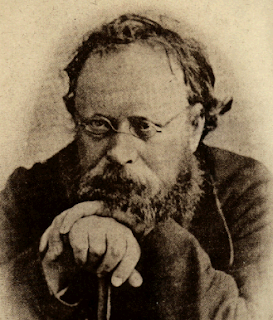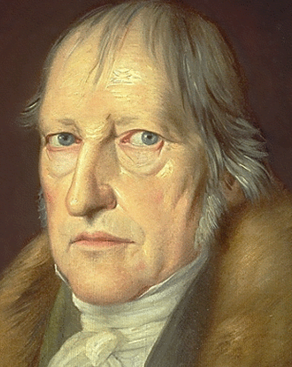Against Everything
 •
by
•
by Pfenix Quinn

OK. Happy Summer. This a good time to review a few things.
Thomas Paine...

...said government is produced by our own wickeness. To paraphrase: "Dudes, if the impulses of our conscience were clear and irresistably obeyed, we'd need no other lawgiver. That not being the case, we find it necessary to give up part of our stuff to furnish means for the protection of the rest of our stuff, much like we tend to always choose the lesser of two evils."
Paine had the virtue of not puffing up the state with quasi-cosmic partriarchal god-on-earth mumbo-jumbo. He admitted that, at its core, the state rests on coercion. That our neuroses about keeping our stuff safe leave us feeling vulnerable. Thus we fall for it.
The thing is though. Lots of people really are complete shits, right? Murder, robbery, rape and so-called "modern country" music follow humans around like a stinky cloud of their own nastiness.
Pierre-Joseph Proudhon...

...knew that. He pointed out the logical flaw of expecting the state to protect us against our own bad natures. Even if people are utterly debased, it doesn't then follow that state power is necessary or legit. After all, the state's power people are likely to be at least as debased as everyone else. Logically then, giving them lots of guns and money tends to make the whole mess even worse.
Hobbes...

...
😉,Locke, and Rousseau were anxious to establish that the legitimacy of the state does not rest on force, but is in some sense simply inevitable and necessary. The social contract theorists looked to cast anti-authoritarians as ranting religious fanatics with no philosophical grounding and philosophers of the state the only reasonable alternative.
Georg Wilhelm Friedrich Hegel...

...saw the modern state as the executor of God's will. Not so much in the older sense of Divine Right of Kings, but in a more eschatological sense. The world-historical advance of self-knowledge progresses, he thought, through a dialectic that expressed itself in state power. Hegelians were enthused at first about radical democracy, then about the absolutist state as manifested in the Prussian monarchy.
Karl Marx...

...was more clear-sighted. He acknowledged the coercive nature of state power. His twist was arguing that having enough good, funny kind of dictatorships for a while could overcome the bad, not-so-funny dictatorships, then eventually the need for them would fizzle out like one of those cheap little 4th-of-July sparklers. This idea appealed to quite a few folks.
Nestor Mahkno, an anarchist who got the real nature of state power, ...

...disagreed. For example, he argued with Vladimir Ulyanov, one of Marx's most famous altar boys, that the anarcho-communists of Ukraine were firmly planted in the present moment. Whereas the nationalistic authoritarian bolshies, who insisted on calling his nation "Southern Russia", barely even knew any of the regular Ukrainian folks who'd been fighting against the Austro-German invasion. Much less had the best ideas for how their nation could move on from the disgraced and fallen imperial czarist monarchy.
So where does that leave us?
Despite its many self-justifications and festivals of loyalty, the state seeks no justification and brooks no refutation of its force. Average mid-level bureaucrats spend little time groping for the concpetual foundations of their power. States generally feel a need to establish their own legitimacy only in response to those few people who seriously entertain the idea that there is no obligation to obey state power.

It's probably fair to say that most of us approach the law carrying a notion that we have no innate obligation to it other than not getting caught ignoring it. Very few of us actually venerate the majesty of the law in our everyday lives. Yet we also tend to routinely accord the agents and laws of the state a quantum of actual respect.
Such respect reduces considerably the costs to the state of managing its authority. Along with... state-designed education. Surveillance. The pageantry of nationalism. The aesthetics of state architecture. Its colors. Its parades. Its flags and songs. The machine of power.

So.
What -- at its core -- is the ontological status of the law? What sort of thing is it? How does it -- or does it? -- transform people into something? And what thing is that? That thing that is supposedly grander than human individuals?

Democracy, finally, claims an exclusive legitimacy, with an elaborate set of procedures employed to legitimate itself. Democracy is state power with a bad conscience, a power that takes the notions of liberty, freedom, consent and the dignity of individuals to be important.
More than any other theory legitimizing state power, democracy feels threatened by anarchism, which claims that democracy contradicts its own goals, such that its liberal-to-conservative advocates engage in endless contortions to defend the need for state force while endlessly not only complaining about exactly those forces, but devising ever-more-complex hypocrises and puzzles.
At its core, democracy is contract theory. The consent of the governed. Within that fiction lurk the seeds of a squishy totalitarianism. There is no principled limit to political power if it is the citizens' power over themselves. There is no aspect of every life within its borders not subject to its projects for social amelioration. Creating docile citizens becomes the pervasive goal of a peoples' democracy or of a nationalist-populist proper-noun "We" = "the People" who have constructed (conservatively) or are constructing (liberally) a "perfect" union.
In fact, many social organizations, both small and large, operate just fine -- including with a collective acceptance of rules for the common good -- without needing any kind of involuntary coercion.
The practical question is whether -- and how -- such forms of organization might work at scale.

...pointed out that there is no way to make a detailed prescription for how people will arrange their lives once those lives are free of coercion. Detailed ideological blueprints for the future -- whether Plato's, Augustine's, Locke's, Madison's or Mao's -- are, psychologically speaking anyway, a totalitarian impulse.

“Provided we can escape from the museums we carry around inside us, provided we can stop selling ourselves tickets to the galleries in our own skulls, we can begin to contemplate an art which re-creates the goal of the sorcerer: changing the structure of reality by the manipulation of living symbols ... Art tells gorgeous lies that come true.”
-- Hakim Bey
OK, that's enough idle thoughts for today. Stay fresh, my friends. The state is not inevitable.
xoxoxox,
PQ


Comments
"Laws: We know what they are, and what they are worth! They are spider webs for the rich and mighty, steel chains for the poor and weak, fishing nets in the hands of government." -- Proudhon
"When the people shall have nothing more to eat, they will eat the rich."
Jean-Jacques Rousseau:
The people who hid Anne Frank were breaking the law.
The people who killed her were following it.
yeah.
o7
I think the last one that really thought "the states were not inevitable" was sumerian.
Probably. With the exception of a few sorcerer-artists maybe.
Wonderful and interesting article.
Thank you.
You're welcome! Glad you liked it.
o7
Down with the state! Who needs 'em!
Thomas Paine FTW ..
"...said government is produced by our own wickeness. To paraphrase: "Dudes, if the impulses of our conscience were clear and irresistably obeyed, we'd need no other lawgiver. That not being the case, we find it necessary to give up part of our stuff to furnish means for the protection of the rest of our stuff, much like we tend to always choose the lesser of two evils." "
Government will exist and is necessary while that statement holds true. A way to change that path is to reduce or eliminate that other evil or government will always be necessary. To me, Education is a key part of getting off that path. There are a lot of things to be honest, breaking down human psychology.. but being educated about ourselves and psychology would hopefully create a lot more flat out understanding.
nice images i see here. subscribed.